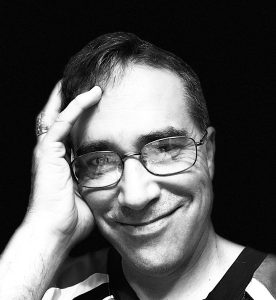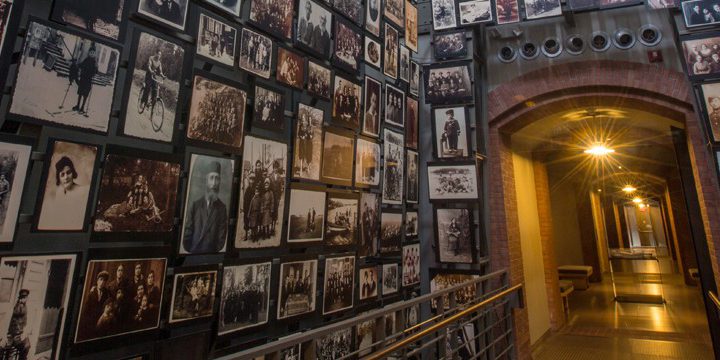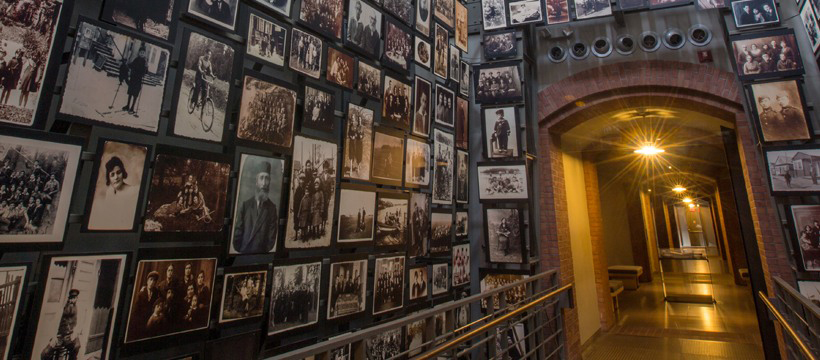My family and I had been standing in line for nearly half an hour at the United States Holocaust Memorial Museum in Washington D.C. Despite all that time and with prior experience at another high-security location, I still wasn’t ready when we got to the bag inspection area.
On a previous trip to D.C. with college students, our group had gone to the Supreme Court. Immediately before that we had visited the Baptist Joint Committee for Religious Liberty just a few blocks away. They had given us goodie bags of souvenirs and brochures. Standing in line to enter the Supreme Court, I started reading one of the brochures. The line kept edging forward. Suddenly, three guards with concerned faces bolted past toward the rear of the line. They asked who the bag on the floor belonged to. I thought, “What idiot left a …?”

Brad Bull
I walked back. “Sir, I’m sorry. That’s my bag.” He handed it to me and barked for all the world to hear: “Keep your possessions with you at all times, sir!”
Now my family and I were at the Holocaust Memorial, and — duly chastened during that previous trip to D.C. — I was being very cautious. We arrived at the security checkpoint. On this day I was wearing a black leather waist pack, and I surrendered it to be searched. The officer dug out several items and then withdrew something I had totally forgotten I had in the pack: a small canister of pepper spray. It wasn’t much bigger than a tube of lip balm.
The officer barked at me that weapons were not allowed on the premises. I stuttered an apology and that I had forgotten I had it. I asked if I could take it to my car and then catch back up with my family. The angry-faced officer firmly blurted, “No, you may not. If you get out of line, you have to go back to the end.” That would put us outside our reservation time. The officer gruffly continued, “If you want to proceed you must dispose of the canister.”
I said, “OK” and was sent to a station a few feet away where a stone-faced officer directed me to sign a consent form that my property was going to be destroyed. The officer then opened something that looked like a cross between a public mailbox slot and a stainless-steel trash compactor. I attempted to hand the pepper spray to the officer. He snapped, “No, sir. You must dispose of it yourself.” I dropped the red-triggered canister down the chute.
I know it sounds silly, but I hated to lose that pepper spray, even if I’d forgotten I had it. The gruffness of the guards about throwing it away eventually led to me reflecting on the ridiculousness of my sense of loss and fear compared to those in the Holocaust.
“I feel ashamed of the level of anxiety and grief I had that day at the museum.”
Upon his arrival at the concentration camp where his pregnant wife and parents would be killed, psychiatrist Viktor Frankl was forced to discard a manuscript of a book he had written. After the war, he would reconstruct the ideas into two books: The Doctor and the Soul and Man’s Search for Meaning. Now here I was with no threat to my life or my family. When I consider the horror of those who endured genuinely hostile guards and destruction, I feel ashamed of the level of anxiety and grief I had that day at the museum.
After I drooped the pepper spray in the compactor, my family proceeded into the museum. We each were given random names and would find at the end if we survived the Holocaust or not. (We did not.) We saw heart-rending displays — such as thousands of shoes of people gassed to death — and horrifying images of emaciated corpses.
When I go to a museum, I read the texts of all the exhibits. After all, what is the purpose of a museum but to think? That is the literal etymology. To muse is to think. Thus, our Greek-rooted word “museum” designates a place to think. By contrast, the Greek prefix “a” negates. So, an “amusement park” is a place not to think.
Personally, I disagree with this strict thinking/not thinking dualism. My daughter was homeschooled in kindergarten. I was in charge of science and physical education. We once spent a day homeschooling at Dollywood Splash Country. We got plenty of exercise. We also did lots of thinking about gravity, angles, velocity and volume. Who says it’s not fun to think? Granted, I do sometimes like to escape into a bubblegum book or movie that does not require thought to enjoy. However, most times, I find great joy in literature with depth of symbolism that involve analysis and profound feelings.
The fact I enjoy thought-provoking reading means it takes me more time than most folks to tour a museum. Since we had entered late in the afternoon, we still had much more to cover when an announcement came that the museum would be closing in 15 minutes. I tried to take in as much as possible, but then we were told to proceed to the exit.
“We were being herded onto a boxcar by armed guards.”
I turned to look at the movement coming toward me: three guards walking shoulder to shoulder the breadth of the walkway. We were being herded out. I looked to my left. The walkway-wide hoard included my wife and children. There was a ramp ahead that went into … a boxcar.
We were being herded onto a boxcar by armed guards.
I’m a tall, white, Protestant, well-educated, heterosexual male. Other than wealth, I have every social advantage recognized in the United States. But now I had a sense of being overpowered. From the commanding guards, to being dispossessed, to seeing images of atrocities, to being herded onto a boxcar, I was aware of my anxiety in the safety of a museum. I strived to put myself in the shoes of those horrifically absent. But can one ever do other than accept that we will never know the pain?
My thoughts were not limited to rationale analysis, though. As I studied the exhibits, I allowed them to evoke the affects of disgust, horror, grief and anger. Then, as I, my family and fellow citizens were herded onto a boxcar, I felt fear. It chilled me even though I knew we would come out safely on the other side.
To the extent there was another side for us, we had the benefit of assurance. So, I tried to force myself to imagine the horror of the known compounded by the unknown.
In this way the experience transcended a trip to a merely thought-provoking museum. I ached for an oppressed people — a people marginalized, dispossessed and slaughtered. Therein, the facility became a musaffecteum — a place of thinking and feeling.
As I muse on that experience some 15 years later, I find myself once again hurting for peoples marginalized, dispossessed and slaughtered. I ache for the pain of my Jewish brothers and sisters. I also ache for my Palestinian brothers and sisters now suffering their own holocaust.
Brad Bull earned a Ph.D. in human ecology and a master of divinity degree majoring in pastoral counseling. He has served as a chaplain, pastor, university professor and therapist. His dinner table has hosted both Jews and Palestinians.


